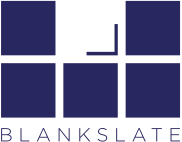Bad recruitment tactics are like bad online dating. You scroll through lists of potential dates (candidates) and swipe left or right (move candidates to phone-screening) to find someone you think might be a good fit. You experience the rush of that first meet-up (in-person interview), but ultimately you’ll need to decide whether to date ’em or ditch ’em (hire or decline).
We don’t do dating advice at BLANKSLATE Partners, but we do love coaching our clients and hiring managers through the pitfalls of recruiting.
So what happens when you read a resume, or get off that first phone call feeling starry-eyed about a potential candidate?
Falling in Love with a Candidate
The cardinal rule for dating is the same for recruiting: don’t fall in love with the first person you meet. For sure don’t fall in love with their dating profile (a.k.a. resume), which could be filled with half truths, out of date information, and embellished skills that only match what they think you want to hear.
“Confirmation bias is the tendency to search for, interpret, or prioritize information in a way that confirms your beliefs or hypotheses. Based on the slightest interaction, we make a snap, unconscious judgment heavily influenced by our existing biases and beliefs. Without realizing it, we then shift from assessing a candidate to hunting for evidence that confirms our initial impression.” Laszlo Bock, Work Rules
A good or bad handshake. Shared tastes and experiences. A smooth or awkward introduction:
We make snap decisions about a candidate, with little basis in fact or knowledge of their ability to actually perform in the job.
We then spend the rest of the interview confirming our initial beliefs. This is called confirmation bias, or “thin slices” as Laszlo Bock likes to refer to these tiny observations we use to make big decisions.
So does that mean that all interviews are useless? That we are predisposed to make uninformed choices, and trust blind luck that the people we hire will actually be good at what we need them to do? This methodology may not apply to dating, but here are a few principles that will help you make an amazing hire.
1. Decide On A Hiring Process
Write it down, get agreement, and stick to it. The biggest inhibitor of growth is the inability to hire the right people at the right time. If you can’t hire enough of the right people, you can’t grow. So we know that process may seem like anathema to a growing startup, this is one foundation you can’t skip out on.
2. Conduct Structured Interviews
Yup, we know you just like to wing it during interviews. You prefer to freeform the discussion based on the person. You tell them lots about your company, your vision and how awesome it is to work here. This is all good, but without a structured interview, you will fail to gather enough data to make an informed decision about the candidate.
In 1998, Frank Schmidt and John Hunter published 85 years of research on how well assessments predicts performance. When they looked at later job performance, unstructured interviews could only explain 14% of an employee’s performance. At 7%, reference checks weren’t much better, and number of years of work experience only accounted for 3% of performance outcomes.
Hiring someone based on years of experience, an unstructured interview, and reference checks is about as foolproof as swiping right to find your soul mate. It could work out, but the odds are against you.
In contract, structured interviews had a 26% correlation to job performance. Structured interviews: create, embrace, and use them consistently.
3. Give Projects or Work Sample Tests
The best predictor of how a candidate will perform in a job is a work sample test (29 percent according to the Schmidt and Hunter study).
Create a small sample test of typical work tasks. Then either send it home with the candidate, or ask them to finish it on site. BLANKSLATE has some amazing clients who later give candidates the option to return and whiteboard their work sample. This provides a great opportunity for team members to meet the prospective candidate, see their work (and thinking), and get a second look at short list candidates.
4. Conduct Cognitive Tests
Right up there with structured interviews, results on general cognitive tests have a 26% positive correlation to performance. And we don’t mean clever brainteasers about manhole covers. These tests have defined right and wrong answers: similar to what you might find on an IQ test. They’re good at indicating performance outcomes because cognitive ability measures your capacity to learn. It’s that vital combo of intelligence and learning ability that makes most people successful in their job. Do some test questions fall victim to gender and racial biases? Absolutely. But these tests are one more failsafe to keep you from falling in love with your candidate.
Tips for Hiring Smart People You Love
So how can you keep emotion out of it, and make that next great hire who can help you scale your company? Here’s our tips to ensure your next employee is amazing, not average.
- Make your decision based on empirical evidence, not a gut feeling.
- Set aside time to plan every stage of the recruiting and interviewing process.
- Create a process that makes sense for you and your company culture.
- Combine structured interviewing, cognitive tests, and work-sample tests to assess each candidate fairly and accurately.
If you’re still feeling overwhelmed, or simply don’t have time or resources—give us a call. BLANKSLATE Partners would love to be your matchmaker.
